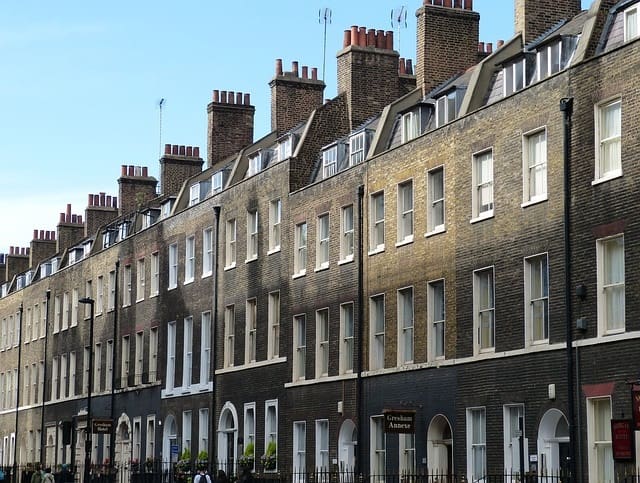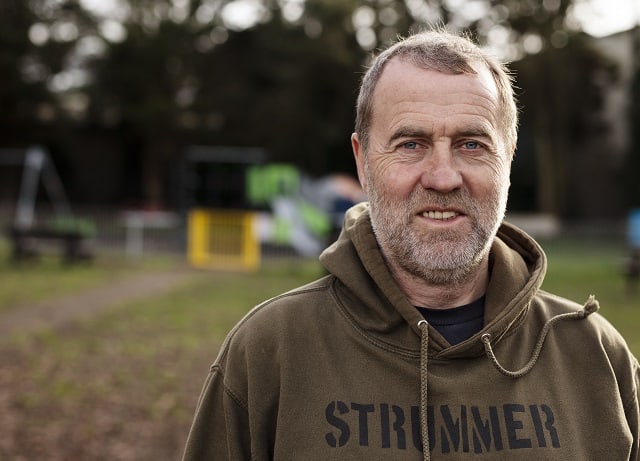
The number of second homes in Thanet increased by 10% from 2021-22 rising from 1,733 to 1907.
The figures are shown in data analysed by Action on Empty Homes. Each year the organisation analyses the Government’s official data on long-term empty homes. The latest figures were published by the government in November 2022.
For Thanet the increase is 174 second home properties.
At the end of 2021 a Kent Housing Stock report said Thanet has 67,903 dwelling stock with 3,049 council properties; 4,690 private registered providers; 225 ‘other’ private sector and 59,939 private sector.
The report stated some 2.5% (1,670) of the total housing stock in Thanet are second homes, the highest rate in the county. Across Kent 8,698 dwellings were recorded as second homes with most in Thanet, Canterbury, Dover, Folkestone & Hythe and Swale.
A 2020 report into housing need commissioned by Thanet council included interviews with six isle estate agents.
They reported that Thanet property purchases by people from outside of the isle can be split between those who are buying a home to live in (80%) and those buying a home to rent out or as a second home (20%).
For the latter the most popular type of accommodation is new build flats with a sea view, particularly in Broadstairs and Margate (Old Town). One agent suggested that 30%-40% of new flats with a sea view are only occupied occasionally.

Thanet Green Party leader Mike Garner suggests using a council tax premium for second homes and making planning permission mandatory for properties built or bought for that use. Council tax premiums are already applied to long-term empty properties.
Cllr Garner said: “The 10% increase in the number of second homes in Thanet to 1,907 last year is similar to the increase seen in coastal districts around the UK.
“While the number of families on council waiting lists for accommodation are also increasing, there are uncomfortable truths that need to be confronted.
“How many properties do people really need to own? As recently pointed out by environmentalist Georg Monbiot, if you own a second property which you keep empty for most of the time, you’ve inadvertently created a need for another home to be built unnecessarily. This is not just unfair for those people who are without somewhere to live but also terrible for the environment.
“A start could be made through increased council tax premiums on second homes and long-term empty properties, above those begrudgingly introduced recently by the government, as well as introducing the need for planning permission to be sought if homes are either built or purchased for that purpose.
“More radical, central government, legislation is needed to tackle the housing crisis faced by so many in Thanet and the rest of the country. The current “build, build, build” mantra of both the current government and the official opposition is not the answer.”

Thanet council deputy leader Cllr Helen Whitehead said agreement to apply a council tax premium to second homes is something Thanet council is already committed to doing once new legislation is passed.
The Levelling Up and Regeneration Bill, which is currently passing through Parliament, will provide powers to billing authorities such as Thanet council to charge a discretionary council tax premium of up to 100% for dwellings which are second homes. The legislation, if passed, is due to come into force from April 2024.
Cllr Whitehead said: “There is a national housing crisis and the situation in Thanet is no exception. People purchasing second homes in the district is a contributing factor. The outcome is that there are fewer homes available to rent or purchase.
“The council is in agreement that we need to act, in order to relieve the pressure.
“Council has already agreed to an accelerated programme to deliver new housing in the district, with a commitment to buying or building at least 400 new affordable rented homes by 2027. In fact, we have identified two new projects that will provide 51 homes this year.
“We have started by purchasing 41 new homes at Spitfire Green, which will be let at affordable rates. (One further property will be purchased in the development’s next phase).
“Council tax is an important source of income for the council, as funding from central government has fallen significantly in recent years. Assuming that new legislation is passed, councils will be permitted to increase council tax premiums on second homes from 1 April 2024 and we have already committed to do so.
“This will mean that we can increase council tax receipts on properties that could be available to buy or rent, but are instead second homes. The anticipated outcome is that second homes will become less attractive to investors, freeing up properties for people who want to live in Thanet all year round.
“In relation to planning stipulations, there is currently no mechanism for controlling second homes in Thanet. The Government did however consult on proposals for a new planning use class for short-term lets and a new registration scheme earlier this year. We await the outcome of these proposals, and we will consider this as part of the process to update Thanet’s Local Plan.”
Thanet council’s Cabinet considered a report on council tax for empty and second homes on 12 January and approved two recommendations:
- To introduce a 100% council tax premium on properties left empty (unoccupied and unfurnished) for between one year and less than five years.
- To introduce a 100% council tax premium on properties unoccupied but furnished (often referred to as ‘second homes’).
Both premiums will apply from 1 April 2024, subject to the Regeneration & Levelling-Up Bill receiving Royal Assent.
Council tax premium consultation
The Levelling Up and Regeneration Bill also contains a provision to amend the definition of ‘long term empty homes’ so that, for financial years from 2024-25 onwards, dwellings unoccupied and substantially unfurnished for a continuous period of at least one year are liable to the council tax premium.
There is currently a consultation on the measures contained in the Bill which runs until August 31.
Find the consultation here
Long term empty homes
The Action on Empty Homes data also shows long term empty homes which, in Thanet, dropped over 2021-2022 from 877 to 866.
At a council meeting last month Thanet council deputy leader Helen Whitehead revealed the isle now has 1,551 long term empty homes being monitored by the authority.
Of these 1,540 are in private ownership and 11 properties belong to the council. Seven of the council homes are fire damaged, three are welfare units and one is currently under consideration for future housing plans.
During the July meeting Cllr Whitehead noted: “Although the overall number of empty properties is often quoted, it is also very worth noting that over the past 15 years our council has been the most successful local authority in the whole of Kent in terms of empty property interventions and in the number of homes brought back into use.”
An additional amount of council tax is charged when a property has been empty and unfurnished for two years or more.
- For properties that have been empty and substantially unfurnished for two years, but less than five years, the premium is set at 100%
- For properties that have been empty and substantially unfurnished for five years but less than ten years, the premium is set at 200%.
- Where a property has been unoccupied and substantially unfurnished for ten years or more, the premium increases to 300%. This means the owner of a property which has been empty and unfurnished for ten years or more, will be charged an extra 300% Council Tax on top of the full Council Tax for the property (a 400% Council Tax charge).
Council monitoring 1,551 long term empty homes in Thanet
Social housing need
There are currently around 1604 applicants on Thanet council’s housing register. Last month there were 233 households in temporary accommodation and 135 of those were being housed outside of the district.
In July Thanet council approved plans to ‘significantly’ speed up its affordable housing development with the aim of providing at least 400 social homes by 2027.
This was kickstarted with approval of a £7.485m spend to buy 51 new homes consisting of 42 properties at the Spitfire Green development by Barrett Homes at a cost of £5m and 9 properties at Westwood using £1.19million of funding from a national £500 million scheme to enable local authorities to purchase properties for Ukrainian and Afghan refugee households for an initial period of 3 years. Thanet council will match-fund the grant with £1.996million from its housing capital programme.
Since 2015, the council has added to its existing housing stock by building or buying 144 new affordable rented homes.

